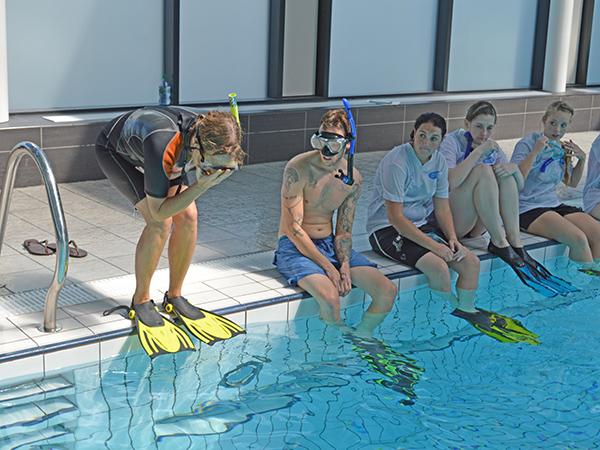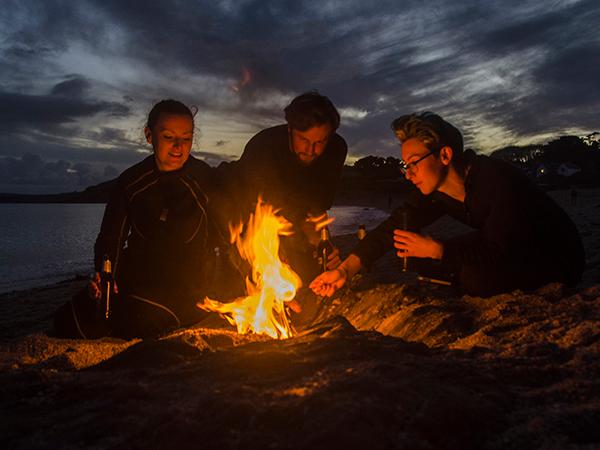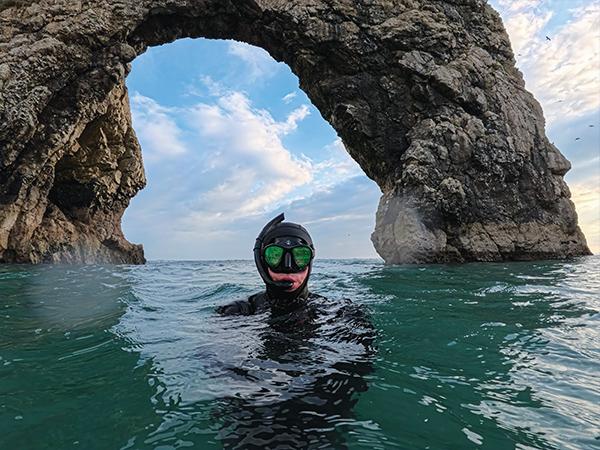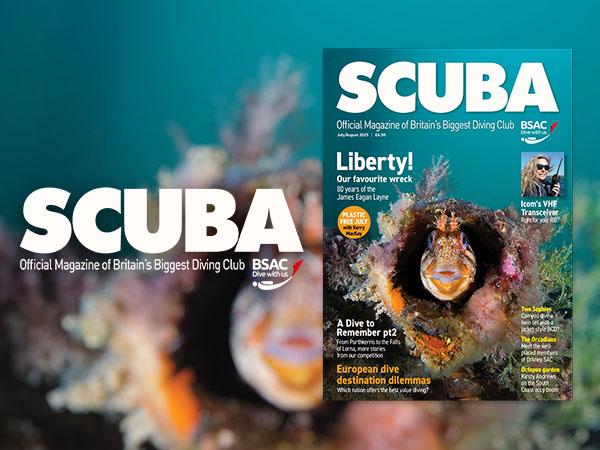If you would like to download and print these tips for your club and students, you can find a printable version below.
1. Never dive alone
The minimum snorkelling party is three: a buddy pair to look out for each other in the water and a shore lookout.
2. Get fit
By being physically fit you will not only be able to enjoy your snorkelling more, you will also be safer.
3. Train with a recognised scheme
The BSAC Snorkel Diver programme is a progressive system to help build skills and technique so you can enjoy the sea safely.
4. Check your equipment
A strap breaking on a fin, a badly fitting mask or a leaking snorkel valve while you are at sea can all cause problems. Taking good care of your equipment and checking it carefully can reduce the chances of kit issues.
5. Choose a safe site
Avoid areas with heavy boat traffic, dangerous currents and rip tides. Make sure the entrances and exits to the water are easily accessible and that there are alternative places to exit if the dive is cut short.
6. Check tides when planning your snorkel
Safest times to snorkel are at slack water, which usually occurs near high or low tide.
7. Check the weather and sea state
Before setting off check the weather forecast. Although rain can be unpleasant, it isn’t necessarily as bad to snorkel in the rain as in a wind. Wind can cause waves to increase which makes snorkelling tough. Force 3-4 (12mph+) is usually enough to cancel.
8. Don’t hyperventilate
Hyperventilation (over-breathing) is rapid, unusually deep, breathing which can reduce the levels of carbon dioxide concentration in your body tissues. This can mean that the stimulus to breathe is delayed, allowing the snorkeller to stay underwater longer than they should which delays the trigger to breathe and can lead to blackouts. This should be avoided.
9. Don’t dive with a cold
If you have a cold, you could have mucus congestion which can cause a blockage in the air tube between your throat and your ears. This congestion can prevent your ears from ‘popping’ (like when you travel in an aircraft) and adjusting to the increased pressure underwater. If your ears don’t pop, they may get damaged.
10. One up, one down
While diving with your buddy, avoid both diving underwater at the same time; one should stay on the surface in case the other snorkeller has problems.
11. Competing
We recommend you don’t compete using surface dive techniques to achieve deep depths. Freediving is not recommended as this is pushing personal safety limits unless specific training is undertaken.
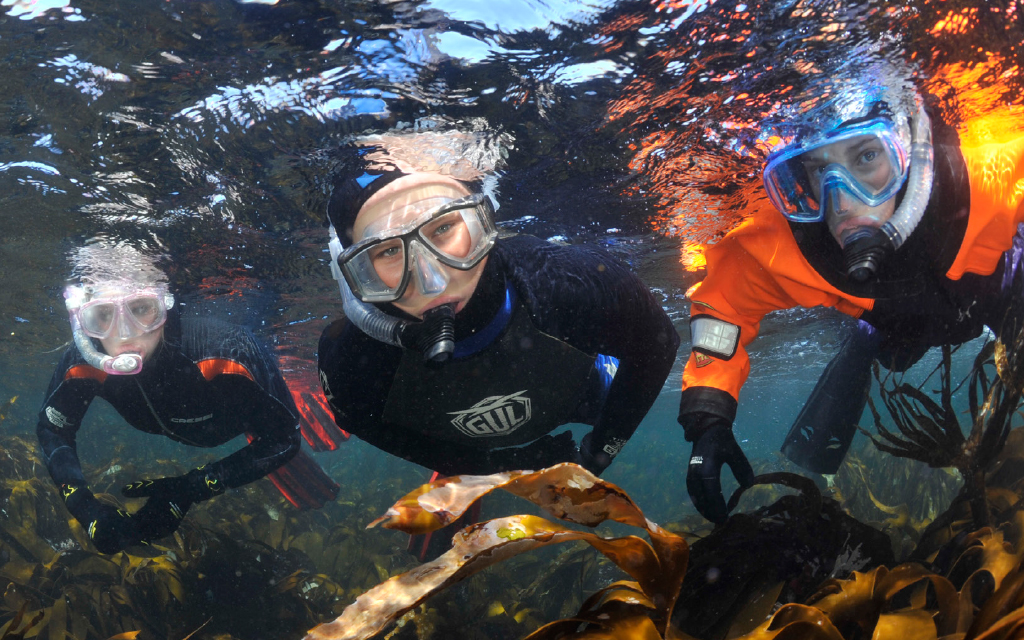
Think safe, snorkel safe
Please follow the advice in BSAC’s Safe Diving booklet to keep your snorkelling safe.




